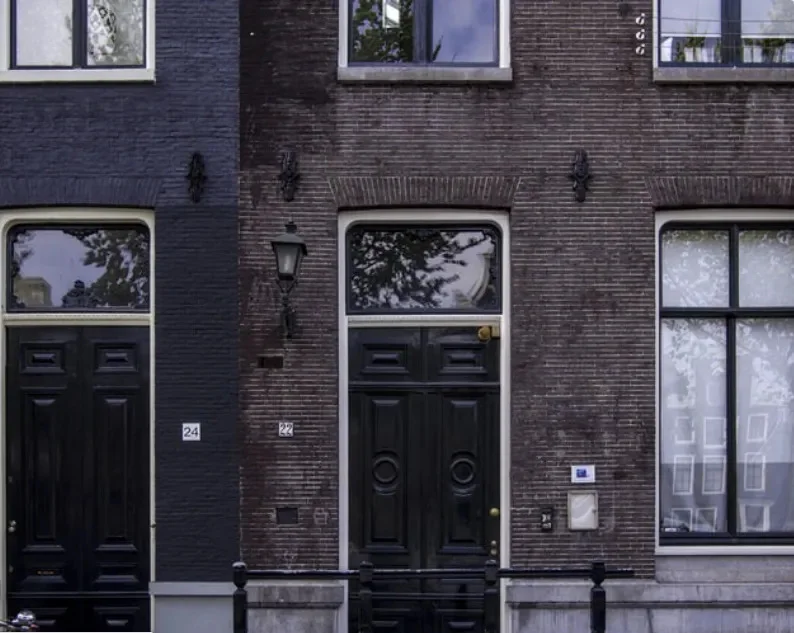Working abroad with accommodation sounds like a great deal for everyone who’s searching for new experiences, better wages, higher quality of life, or a whole new life. And what if we told you that with a little flexibility, you can start working in the Netherlands in just a couple of weeks.
At Robin, we make this a reality. We offer jobs abroad to workers from all over the EU. Not only that, but you’ll have accommodations and organised transport to work. If you are looking for the perfect job abroad, keep riding to find out more about these abroad work and accommodation arrangements.
Jobs With Accommodation Abroad: Robin’s Specialty
However, before we start, you should understand how finding a job works via Robin. We are a recruitment agency that helps blue-collar workers find jobs in the Netherlands, Germany, and Belgium. We work with 35 employment agencies that need workers like you.
These agencies will be your employer and they will also provide accommodation and transportation for you. To enjoy the ease that comes with all that, you need to register first on Robin and apply to a job you like. After that, our recruiters will reach out and help you with the next steps.
Accommodation in Netherlands: A New Life at A Glance
The Netherlands is one of the most developed countries and has some of the best working conditions. With its minimum wage of €1,635.60 and the potential to earn even more, people from all over the world want to come and live here with their families and their children.
Regarding accommodation, here are the most common arrangements:
Chalets or House Complexes
In most cases, workers can expect shared rooms in shared housing when they come to work in the Netherlands for six months or more.
The size of the house and the number of bedrooms and bathrooms will determine how many people will be accommodated in a particular house.
The employment agency tries to make the accommodations as comfortable as possible and accommodates between 8 and 14 people in its own houses. While homes are the best deals, not many employment agencies offer them regularly as they tend to be more expensive.
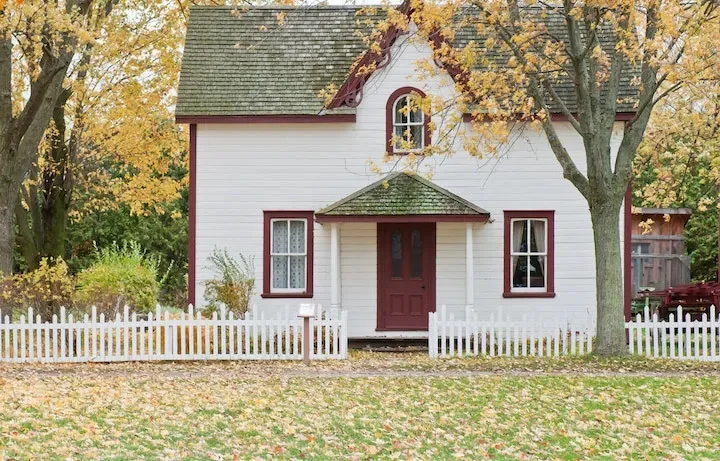
Benefits
- These types of houses are usually located in quiet neighbourhoods with Dutch neighbours, making it easier to integrate into the local community.
- The houses are close to the workplace. You’ll likely get a bicycle and won’t have to use public transport or the metro system to get to work.
- There is very little turnover of residents, which helps them become closer friends and take care of the household together.
Disadvantages
- Homes come in different sizes and offer different living conditions, so you’ll only know what to expect when you get there.
- Agencies have different ways of accommodating people. Some put people of the same nationality in one home, but others put people who work for the same company in another. You can’t choose your roommates.
Holiday Homes
These are suitable for a comfortable life, especially if you aren’t planning on staying for more than a year. Brick chalets are usually located in parks in quiet areas. Depending on the size of the house, it can accommodate 6-9 people.

Benefits
- There are often a number of houses in this type of complex, so there’s a good chance you’ll meet your compatriot.
- Quiet surroundings.
- Close proximity to public transport and car parking allow for easy trips to work.
Disadvantages
- Workers stay shorter, which means that many people come and go quickly.
- The holiday home complexes tend to be remote from the settlements, and while you have an easy route to work, you’re a bit excluded from what goes on in larger cities.
Hotels
Hotels can be great for workers who plan on staying for a bit longer and want to be more active after work. These are often smaller hotels with up to 20 residents.
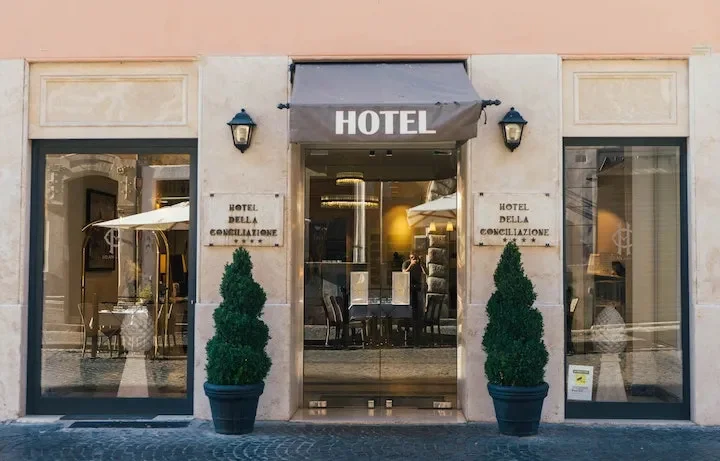
Benefits
- Usually located in larger cities and towns.
- Facilities such as table football, a pool table, and a sports club.
- Employment agency representatives you can turn to.
- Close to public transportation
Disadvantages
- Hotels have limited facilities for cooking your own food, or the kitchen facilities are shared by many people.
- Limited opportunity to integrate into local life and experience Dutch culture.
Mobile Homes
These homes are usually located in recreational areas, and they can be great if you come for a shorter period of time. Mobile homes are also a great alternative in the long run if you find rental prices in your area high.
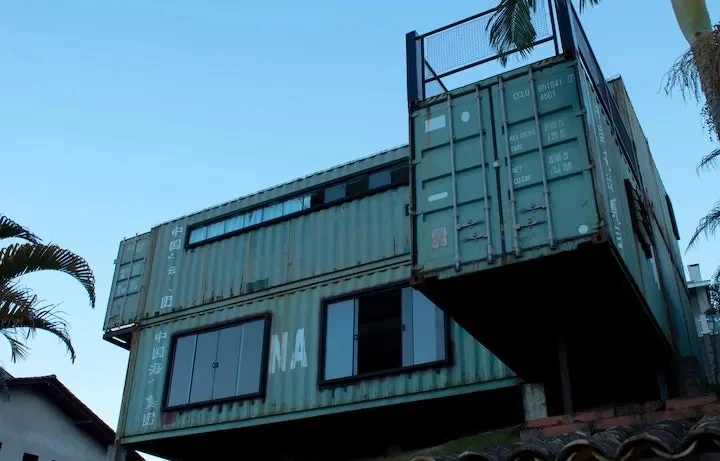
Benefits
- It’s easy to meet workers from your home country in mobile home settlements.
- As the settlements are mostly located in recreational areas, they offer a wide range of activities, such as fishing, swimming, basketball, or football.
- Transport to and from the workplace is well organised.
- There is a recruitment agency representative on site who can respond immediately to any problems.
Disadvantages
- Residents move in and out quite frequently, which can cause maintenance inconveniences.
- The mobile home complexes are remote from settlements, making it difficult to get to know the locals.
- Rooms in mobile homes are small.
- Often, mobile homes are poorly insulated, which can make them cold during the cold season.
The Big Question: How Much is Rent?
Finding affordable housing on your own can be troublesome, and even expensive. That’s why Robin has partnered with trusted employment agencies in the Netherlands that provide workers with accommodation at a good price, allowing them to save the money they earn.
This means that rent costs are typically between €85 to €110 per person per week. The rental price depends on the type of residence, the number of inhabitants, and the region in which you will work and live. No matter what type of residence you will be living in, the employment agency will charge a flat rent each week. You will not have to pay the rent in advance, as it will be deducted from your salary after 7 days of work.

The rent includes all of your utilities, local government and sewage disposal fees, along with internet.
SNF Accommodation Standards
We want the best for our candidates, which means we only work with employment agencies that offer SNF Qulaty living conditions. The SNF Stichting Normering Flexwonen is a strictly regulated certification of the place of residence that the temporary employment agency provides to employees, and according to this certification, living conditions must at least meet the minimum requirements.
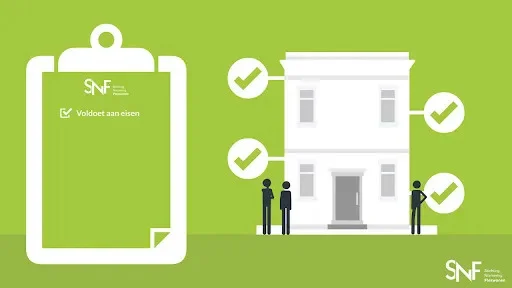
According to the requirements, the place of residence must have:
- 1 toilet and 1 bathroom for 8 people;
- A neat heating system, inspected at least once every two years;
- 30 litres of refrigerator capacity per person;
- 4 hotplates;
- Information booklets on first aid, fire, police, etc. in the mother tongue of each resident in the house;
- Contact a person who can be reached 24 hours a day. per day in the event of an emergency;
- Fire extinguisher, fire and smoke detector, fire blanket;
- The responsible authorities must inspect the residence at least once a year.
There is internet access in almost every place of residence, making your life easier and allowing you to contact your spouse and your children.
Transportation in the Netherlands
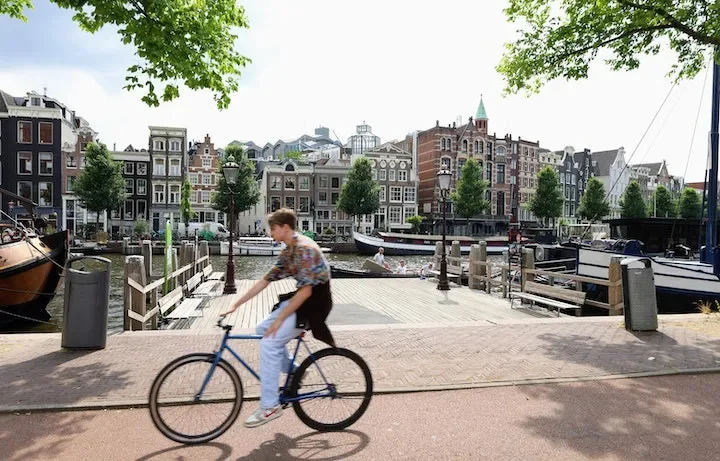
Housing and transportation are the basic needs that recruiters need to take care of for their candidates who get the job abroad. If you opt for Robin, you have nothing to worry about because everyone who comes to the Netherlands through us will have this taken care of. You will either get a public transport ticket, a car, or a bicycle to travel to work.
What Can I Expect to Get?
This will depend on how far you need to commute for work. If the workplace is less than 10 kilometers from your residence, you’ll most likely get a bike. Cycling is a massive part of Dutch culture, and this is how most people there go to work.
Fortunately, you don’t have to pay for a bike in the Netherlands. You only need a deposit to get one, and you get the money back when you return the bike.
If your residence is farther than 10 kilometers from the workplace, you will either take an agency bus for work or receive a car with your coworkers. You should know that you can’t use the company car to run errands outside of work. For everything else, you will either still need a bike or use public transport.
Public Transport in The Netherlands
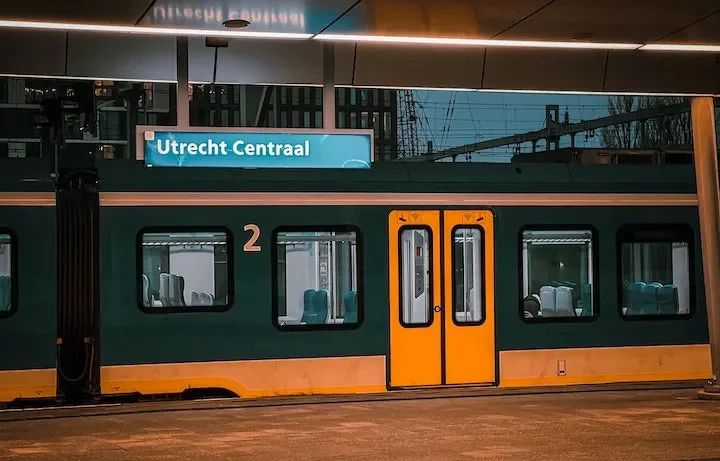
Working abroad is a great way to save money you can spend at home. However, you can also choose to spend some of that money traveling around the country. We won’t give you any travel advice on what you should visit. However, you can find all the details about public transportation here.
Regarding the Netherlands, public transport is well organised and inexpensive and you can get to any place in the country from anywhere.
Buses: Connecting Cities and Regions
Buses are common in the Netherlands, whether you are exploring a city such as Amsterdam or going to smaller places in the rural parts of the country. Amsterdam Central Bus Station is the biggest bus station in the country, with a line to each corner.
Trams: Urban Mobility Solutions
A tram is just as common as the bus. The tram is a great way of transport and is really efficient in cities such as Amsterdam, especially if you need to cover more ground.
Trains: Efficient Intercity Travel
If you want to cover greater distances and explore the country, we advise using the railroad. In fact, you may even use the train to come here in the first place. The country has several railroad companies operating, with a variety of route maps. Most trains are very tidy and punctual, and they are definitely reliable for a longer trip.
Metro: City Underground Networks
Rapid and efficient transportation is available in major cities such as Rotterdam and Amsterdam. One of the more popular lines is metro line E, which runs between Rotterdam and The Hague. Planning a trip when you have the metro is always easy.
Where to Buy Tickets
Buses & Trams: GVB is cashless: pay with debit/credit card or I Amsterdam City Card. Other options: OV-chipkaart (reloadable smart card), barcode ticket via the GVB app, ticket machines, or from tram conductors (card only).
Trains & Metros: Buy tickets at NS counters, vending machines, or online. OV-chipkaart also works (needs minimum balance). Season tickets are available for frequent travellers. Metro tickets can also be purchased at station machines or counters.
Top Tips: Use a contactless card for hassle-free travel. Install the 9292 app for all Dutch transport info.
FAQ About Dutch Accommodation and Transportation
Can I Find a Place in The Netherlands On My Own?
Yes, you can take care of your own accommodation, especially if you want to settle in for longer or permanently. However, if you are looking for seasonal accommodation with transportation for work, Robin’s is among the best arrangements you can get.
I Already Have a Place to Live. Can You Help Me Find a Job?
Because we work with recruitment agencies across the country, chances are we’ll be able to offer you a job. Especially if you have your own car.
What’s the Best Way to Arrive in the Netherlands?
If you arrive by car, you can be flexible, especially if you decide to change jobs. By plane would be the most effective, as the Dutch have great public transportation so you can get to your destination from the airport without a problem.
A lot of workers also choose to travel by Flixbus, which is quite affordable, as well as minibuses that can pick you up at your address and drive you to your accommodation in the Netherlands. That saves time and money you’d spend travelling from the airport or getting a cab.
Does Robin Pay for My Trip to the Netherlands?
No, you pay for your own transportation to the Netherlands. Robin is only responsible for digging a job, accommodation, and organised work transportation.
Check out our job offers and register on Robin to find a job abroad!

 English
English  Lietuvių
Lietuvių  Latviešu
Latviešu  Polski
Polski  Português
Português  Română
Română  Slovenčina
Slovenčina  Magyar
Magyar  Русский
Русский  Espanol
Espanol  България
България  Čeština
Čeština  Italy
Italy  Croatia
Croatia  Greek
Greek 

